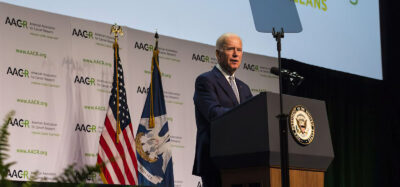NCI is preparing to open the Genomic Data Commons, a $20 million big data endeavor aimed at making raw genomic data publicly available.
NIH has suspended the facilities that produce investigational compounds for an NCI laboratory engaged in cell therapy production and a National Institute of Mental Health facility producing positron emission tomography materials.
The NCI Board of Scientific Advisors approved a proposal to expand the infrastructure and capacity of the SEER program, including introducing registries designed specifically to support cancer research projects, an increase of the program's overall budget, and moving toward a more advanced, uniform data management system.
The American Academy of Arts and Sciences elected 213 new members, including some of the world's most accomplished scholars, scientists, writers, artists, as well as civic, business, and philanthropic leaders.
April 26 marks the 30th anniversary of the Chernobyl nuclear power facility accident in the former Soviet Union. Soon after the accident, I received a call from the Soviet ambassador to the U.S. on behalf of Mikhail Gorbachev asking me to come immediately to Moscow.
A phase III trial will be needed to determine approvability of the Clovis Oncology Inc. agent rociletinib for the treatment of non-small cell lung cancer, the FDA Oncologic Drugs Advisory Committee recommended.
“There is more brain power in this room than exists in many countries,” said Vice President Joe Biden, addressing over 4,000 members of the American Association for Cancer Research, during a speech that turned personal at times, as he laid out several suggestions for accelerating progress.
Stand Up To Cancer announced Catalyst, a program that will use funding and materials from the pharmaceutical, biotechnology, diagnostic and medical devices industries to accelerate research on cancer prevention, detection and treatment.
FDA has conducted inspections of several hospitals—including Brigham & Women's Hospital—based on allegations that physicians and administrators did not report patient harm and deaths resulting from power morcellators.
Over the past several weeks, The Cancer Letter has been running a series of articles that report on a past conflict between people at The University of Texas MD Anderson Cancer Center and Nobel Laureate Al Gilman, who led the scientific review teams of the then newly formed Cancer Prevention and Research Institute of Texas.







